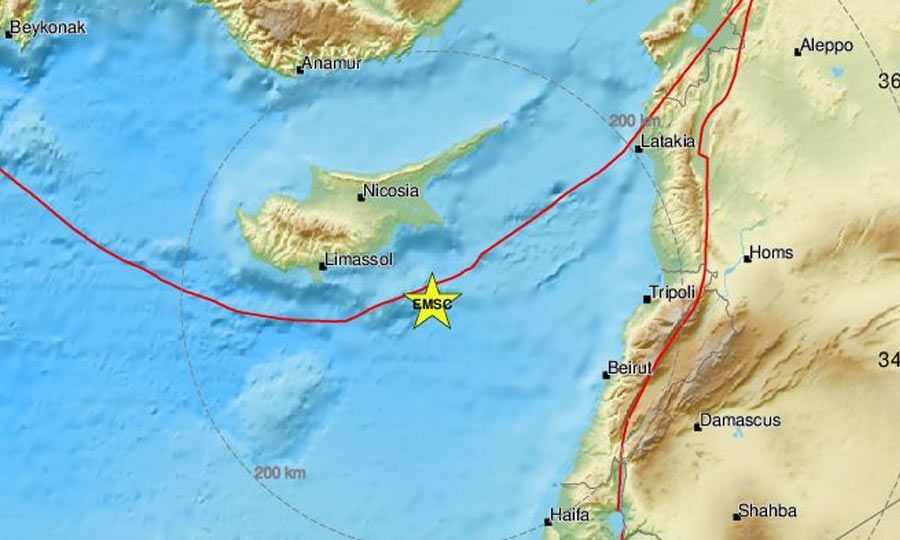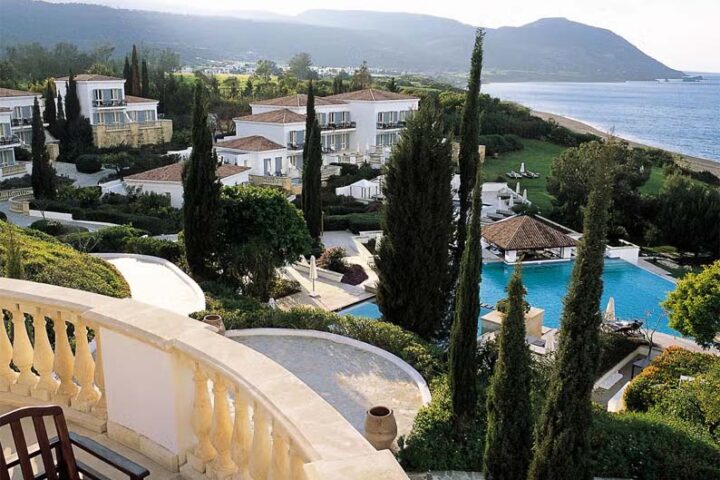Cypriots are used to the ground beneath them shaking as the island is situated within an active seismic zone, which means earthquakes are common.
They are usually quick rumbles that nobody notices, while sometimes strong enough to shake buildings and get people running into the street for safety.
Fortunately, the big whoppers that cause destruction come around every 100 years, give or take a few decades.
Cyprus has witnessed very few killer earthquakes – wildfires pose more of a threat – but recently, those rattling the Richter scale have certainly been noticeable and felt by our neighbours in Israel, Syria, Turkey and Lebanon.
Nature has a way of telling us we live in a fragile ecosystem, and there is little defence against natural disasters like earthquakes, hurricanes or tsunamis.
Friday’s 4.9 quake off Paralimni woke me from my slumber at 4.40 am after the bed started to move, and it felt like the room was transferred to a rowing boat as it swayed.
An earthquake from 4 to 4.9 on the scale is noticeable and can cause minor damage.
I’m not sure how long it went on while I was asleep, but it was a good 20 seconds of shaking once I had awoken.
I’ve done my civil defence, but in the moment, you’re not sure whether to stand under the door frame, find a table to hide under or run for the nearest shelter (every neighbourhood has one).
Once I knew everyone in the house was awake, we went outside to regroup and see if anyone else had felt the tremor.
The street lights were still on, scaffolding on the construction site hadn’t collapsed, and there seemed to be no damage or panic in the streets.
I was certain it was a quake, but once I saw another unimpressed couple come out of an apartment block and casually walk around – it couldn’t have been just me.
There are occasions when the first rattle is just a taster for a bigger, more powerful bang, so I stuck around outside for five minutes just in case.
As it was pre-dawn, I didn’t have the strength to check social media to see if the earthquake experience was felt across the island.
Bad-boy tremor
There have been some stronger quakes this year which did not trigger my highly-tuned earthquake antenna, although they were off Polis or Paphos, and this baby was closer to Larnaca.
You know it’s a bad-boy tremor when it starts to make a screeching noise as if someone is moving a piano across the floor, which is what the last really big shake felt like some years ago.
As Cyprus is on moving plates, earthquakes are unpredictable and can happen anytime without warning.
Cyprus lies in an active seismic zone where it’s estimated that 15% of the world’s earthquakes occur.
Anecdotally, there appear to be more tremors recently of a stronger magnitude that have rocked the island and felt further afield.
On 11 January, a quake measuring 6.5 on the Richter scale in Polis Chrysochous was one of Cyprus’ strongest quakes.
It was the biggest earthquake to shake the island since a 6.8 quake struck Paphos in October 1996, when two people died – the strongest in the previous 100 years.
In 1995 there was a magnitude 5.9 earthquake in western Paphos, with two dead and houses collapsing.
They have the deadliest Cyprus earthquakes to date.
I suspect that climate change has something to do with it.
I’m not sure if it can be scientifically proven, but the environment is becoming more unstable and less at ease with itself as humans abuse nature to the hilt.
The underground rumblings signal that we must listen to nature and remind ourselves that we don’t own the planet but co-habit with other creatures.
Behaving like the neighbour from hell will cause a chain reaction with the earth splitting, volcanoes erupting and general unpleasantness.
Smaller earthquakes take place every 2 to 6 years; those that cause damage are usually of magnitude between 5.5 and 6 that occur every 15 to 20 years.
Earthquakes of a magnitude 6 to 6.5 usually happen every 50 years, and those over 7 (which we haven’t had for a while) come every 150 years.
With the planet spinning out of kilt, those guidelines may die with the dinosaurs.










